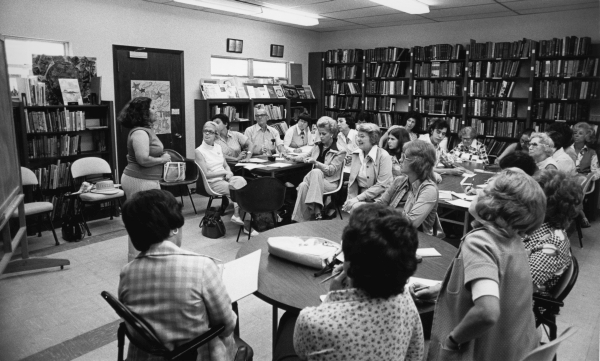
Libraries have long been cherished institutions, historically viewed as tranquil sanctuaries where rows of books offered solace and a pathway to knowledge. This traditional image, while holding a kernel of truth about their foundational purpose, often overshadowed the broader societal functions libraries were capable of fulfilling. For centuries, their primary role was indeed to meticulously collect, organize, and make available a vast wealth of written resources, serving as essential custodians of knowledge for academic pursuits and personal enrichment. Yet, this perception also positioned them somewhat apart from the bustling day-to-day lives of the wider community they served.
In recent decades, however, this long-held view has undergone a profound and necessary transformation. Propelled by rapid technological advancements, an evolving landscape of societal needs, and a growing emphasis on active community engagement, the very definition of what a library represents has been significantly redefined. They are no longer merely silent repositories for books; instead, libraries have blossomed into dynamic, vibrant community centers that actively weave themselves into the social, cultural, and economic fabric of their surroundings, proving themselves to be incredibly adaptable and indispensable institutions.
This article delves into the remarkable reinvention of local libraries, exploring the myriad ways they are expanding their services and cementing their pivotal role in fostering informed, culturally rich, and economically vibrant societies. We will examine how they have become crucial gateways to educational resources, vibrant cultural hubs, significant drivers of economic growth, champions of social equity, vital promoters of health and wellness, and even advocates for environmental sustainability, all while meticulously gathering community input to steer their evolution.
1. **Gateway to Educational Resources**At their foundational core, libraries provide access to an expansive array of information resources, solidifying their status as indispensable pillars for both personal and educational development. They offer a wealth of materials, encompassing traditional books, current magazines, authoritative academic journals, and crucial access to online databases—resources that many patrons might otherwise find financially inaccessible. This democratizes knowledge, ensuring that intellectual growth is not limited by economic status, and that individuals can pursue learning across various subjects.
At their foundational core, libraries provide access to an expansive array of information resources, solidifying their status as indispensable pillars for both personal and educational development. They offer a wealth of materials, encompassing traditional books, current magazines, authoritative academic journals, and crucial access to online databases—resources that many patrons might otherwise find financially inaccessible. This democratizes knowledge, ensuring that intellectual growth is not limited by economic status, and that individuals can pursue learning across various subjects.
Beyond merely housing these valuable resources, libraries actively facilitate a diverse range of educational programs designed to empower community members. These initiatives include providing free tutoring services for students, offering essential literacy classes for adults aiming to improve their reading and writing skills, and conducting practical workshops on topics ranging from basic computer literacy to more complex financial planning strategies. Such programs are paramount in equipping individuals with new skills and knowledge, which can in turn unlock better educational and professional opportunities.
The commitment to supporting education and research extends to formal academic pursuits, making libraries invaluable partners for students, researchers, and scholars. They grant access to specialized academic journals, comprehensive databases, and other research materials that not only bolster formal educational endeavors but also actively encourage independent learning and exploration. By providing such a wide spectrum of educational tools and support, libraries significantly contribute to the intellectual development of individuals and the broader community, helping to cultivate a well-informed citizenry.
Furthermore, libraries foster lifelong learning, recognizing that education is a continuous journey. They offer myriad educational resources and programs for individuals across all age groups, including workshops, seminars, lectures, and online learning platforms. This cultivation of a culture of continuous learning contributes substantially to personal development and professional growth, enabling individuals to adapt and thrive in an increasingly complex and rapidly changing global landscape.
Read more about: Your Ultimate Guide to 15 Top Sites for Scoring Free Stuff Online
2. **Cultural Enrichment and Preservation**Libraries have gracefully transitioned into vibrant cultural hubs within their communities, serving as dynamic spaces that host events and workshops which actively celebrate cultural diversity and cultivate cultural appreciation. Through a rich calendar of activities, including captivating art exhibitions, enchanting musical performances, insightful book readings, and thought-provoking film screenings, libraries play a pivotal role in nurturing a community’s unique cultural identity. These gatherings create opportunities for people to converge, share common experiences, and gain a deeper understanding of diverse perspectives.
Libraries have gracefully transitioned into vibrant cultural hubs within their communities, serving as dynamic spaces that host events and workshops which actively celebrate cultural diversity and cultivate cultural appreciation. Through a rich calendar of activities, including captivating art exhibitions, enchanting musical performances, insightful book readings, and thought-provoking film screenings, libraries play a pivotal role in nurturing a community’s unique cultural identity. These gatherings create opportunities for people to converge, share common experiences, and gain a deeper understanding of diverse perspectives.
Moreover, these institutions often serve as guardians of local history and heritage. Libraries frequently house specialized collections of historical archives, precious local artifacts, rare manuscripts, and compelling oral histories. These invaluable materials offer profound insights into the community’s past, fostering a sense of continuity and collective identity that links current residents to previous generations. By making these resources accessible to the public, libraries ensure the preservation of cultural heritage and actively contribute to a deeper understanding and appreciation of shared traditions.
Public libraries also actively preserve and promote cultural heritage through their special collections of rare books, manuscripts, and historical materials. These curated collections ensure that the rich cultural identity of the community is passed down through generations. They provide essential insights into the past, foster a sense of civic pride, and encourage a more profound understanding of one’s roots, preventing invaluable knowledge and traditions from fading into obscurity.
In essence, libraries extend beyond being mere venues; they are active facilitators of cultural exchange and dialogue. By organizing diverse cultural programs and events, they bring community members together, fostering a sense of belonging and promoting dialogue and the exchange of ideas. These community-centered initiatives strengthen the social fabric and shared appreciation for culture and knowledge, enriching the lives of everyone involved.
Read more about: Beyond the Buzz: Unpacking the Overlooked Real Costs of Nostalgic Collecting for Vintage Enthusiasts

3. **Economic Impact and Support**Economically, libraries have embraced a significant role by actively providing tools and resources that foster entrepreneurship and employment within their local areas. They have become invaluable partners for job seekers, aspiring entrepreneurs, and small business owners, offering practical support that directly contributes to local economic vitality. This support is multi-faceted, addressing various stages of career and business development.
Economically, libraries have embraced a significant role by actively providing tools and resources that foster entrepreneurship and employment within their local areas. They have become invaluable partners for job seekers, aspiring entrepreneurs, and small business owners, offering practical support that directly contributes to local economic vitality. This support is multi-faceted, addressing various stages of career and business development.
Many libraries offer comprehensive job search resources, which include assistance with resume building and access to personalized career counseling. They also provide access to crucial business directories and market research tools, which are invaluable for those looking to start new ventures or grow existing businesses. By supporting professional development and enhancing economic literacy, libraries contribute directly and tangibly to the economic health and prosperity of their communities, helping individuals navigate the complexities of the modern workforce.
Furthermore, libraries serve as vital co-working spaces for freelancers and remote workers, providing a conducive and often essential environment for productivity that might otherwise be unavailable or cost-prohibitive. They also contribute to the local economy by attracting visitors who, while utilizing library services, also engage with other local businesses. This ripple effect helps to boost economic activity in the surrounding area, making libraries silent but powerful drivers of local commerce.
By actively supporting economic development, libraries offer resources and services that benefit entrepreneurs, small business owners, and job seekers. Access to business databases, comprehensive market research reports, and career development resources are instrumental in fostering economic growth and job creation within the community. Libraries also consciously serve as spaces for networking and idea sharing among aspiring entrepreneurs, creating fertile ground for innovation and collaboration.
Read more about: 2025’s Top Picks: Navigating the Road Safely and Comfortably for Aging Drivers with Advanced Assistance Features

4. **Promoting Social Equity and Accessibility**Libraries stand as fundamental institutions in the ongoing effort to promote social equity, working tirelessly to ensure that all community members possess equal access to vital information and essential technology. This role is particularly critical in underserved areas, where libraries frequently represent the sole source of free public access to the internet and computer workstations, thereby bridging a significant digital divide that can otherwise marginalize individuals. They are inclusive spaces, meticulously adapting their services to meet the diverse needs of various groups within the community.
Libraries stand as fundamental institutions in the ongoing effort to promote social equity, working tirelessly to ensure that all community members possess equal access to vital information and essential technology. This role is particularly critical in underserved areas, where libraries frequently represent the sole source of free public access to the internet and computer workstations, thereby bridging a significant digital divide that can otherwise marginalize individuals. They are inclusive spaces, meticulously adapting their services to meet the diverse needs of various groups within the community.
These adaptations include tailored services for seniors, who may require assistance with digital tools or specific programming; for immigrants, who benefit from language resources and integration support; and for people with disabilities, for whom adaptive technologies and accessible formats are paramount. Libraries strive to ensure that everyone, irrespective of their socioeconomic status, age, or physical ability, can fully benefit from the extensive public resources they offer, fostering a truly equitable environment where opportunities are universally available.
Beyond providing access to resources, libraries also serve as crucial safe spaces for individuals from all backgrounds and walks of life. They offer a much-needed refuge for those seeking a quiet place to study, work, or simply read, free from external pressures. Crucially, libraries provide a supportive and non-judgmental environment for marginalized or vulnerable populations, such as individuals experiencing homelessness or those facing mental health challenges, offering access to vital resources and services they might not otherwise find.
This commitment to inclusivity is also evident in their objective to foster digital literacy. In an increasingly digitized world, public libraries recognize the profound importance of empowering individuals with essential digital skills. By offering free computer access, reliable Wi-Fi connectivity, and comprehensive technology training programs, libraries work to bridge the digital divide. This ensures that every community member, regardless of their age or background, has the necessary tools and knowledge to participate fully and meaningfully in modern digital society.
Read more about: Maximizing Your EV Savings in 2025: A State-by-State Guide to the 14 Best Incentives and Rebates

5. **Health and Wellness Initiatives**Recognizing the intrinsic link between individual health and overall community well-being, many libraries are now proactively integrating health and wellness programs into their extensive array of offerings. This expansion reflects a deeper understanding of the holistic needs of their patrons, extending their support beyond intellectual and cultural development to encompass physical and mental health. These initiatives are designed to empower community members with knowledge and resources to lead healthier lives.
Recognizing the intrinsic link between individual health and overall community well-being, many libraries are now proactively integrating health and wellness programs into their extensive array of offerings. This expansion reflects a deeper understanding of the holistic needs of their patrons, extending their support beyond intellectual and cultural development to encompass physical and mental health. These initiatives are designed to empower community members with knowledge and resources to lead healthier lives.
Such programs frequently include a variety of seminars and workshops focusing on critical topics like nutrition, mental health awareness, and physical fitness. These sessions are often developed and delivered in fruitful collaboration with local health professionals, ensuring that the information provided is accurate, up-to-date, and tailored to community needs. This partnership approach leverages expert knowledge to benefit the wider public, making health education accessible and trustworthy.
During periods of public health crises, libraries frequently step forward to serve as indispensable information centers, rapidly adapting their roles to meet urgent community needs. They provide access to trustworthy and timely information regarding health services, prevention measures, and public safety advisories. Their established role as reliable community hubs means they can disseminate crucial information effectively, helping to mitigate confusion and panic during uncertain times.
By offering health-related workshops and partnering with medical professionals for screenings and health information, libraries actively contribute to enhancing public health. They also organize wellness activities, reinforcing their commitment to the comprehensive well-being of their patrons. This transformative role highlights libraries’ deep connection with community welfare, demonstrating their adaptability and unwavering dedication to supporting a healthy, resilient populace.
Read more about: The Autonomous Age: How Driverless Tech is Set to Revolutionize Senior Mobility, Independence, and Community Connection

6. **Support for Environmental Sustainability**Libraries are increasingly taking a pivotal role in promoting environmental awareness and fostering sustainable practices within their communities. They have recognized the urgency of ecological responsibility and are leveraging their unique position as educational and communal hubs to educate and inspire action. This commitment manifests through various programs and operational changes designed to benefit the planet.
Libraries are increasingly taking a pivotal role in promoting environmental awareness and fostering sustainable practices within their communities. They have recognized the urgency of ecological responsibility and are leveraging their unique position as educational and communal hubs to educate and inspire action. This commitment manifests through various programs and operational changes designed to benefit the planet.
To achieve this, libraries organize and host a range of programs and workshops specifically focused on environmental education. These initiatives include hands-on recycling initiatives, practical sustainability workshops that offer actionable advice, and engaging discussions about conservation efforts. By providing accessible platforms for learning and dialogue, libraries empower community members to understand environmental challenges and adopt more eco-conscious behaviors in their daily lives.
Furthermore, many libraries are not only advocating for sustainability but also implementing sustainable practices within their own operations. This includes adopting energy-efficient technologies, utilizing environmentally friendly materials in their facilities, and optimizing resource consumption. By doing so, libraries serve as tangible models of environmental responsibility for the entire community, demonstrating that sustainable practices are both feasible and beneficial.
This commitment to environmental stewardship positions libraries as key players in developing a more environmentally conscious society. Through their educational programming and operational leadership, they actively contribute to cultivating a greener, more sustainable future. Their efforts underscore how libraries continue to adapt and expand their community role to address some of the most pressing global challenges, reinforcing their vital importance beyond traditional services.
The foundational transformation of local libraries, detailed in the preceding discussion, underscores their evolution from passive repositories to proactive community pillars. This ongoing reinvention extends deeply into how libraries address contemporary challenges and anticipate future needs, particularly through strategic advancements in digital access, robust civic engagement, critical emergency support, and a responsive, community-driven approach to adaptation. These efforts collectively solidify their indispensable role in an increasingly complex world.
Read more about: Unraveling the Art and Science: Comprehensive Strategies for Preserving Costume Archives for Future Generations

7. **Fostering Digital Access and Literacy**In an era defined by rapid technological advancements, libraries have become critical institutions for bridging the pervasive digital divide, ensuring that all community members possess equitable access to essential information and technology. They represent a crucial resource, particularly in underserved areas, where libraries often stand as the sole provider of free public internet access and computer workstations. This commitment empowers individuals who might otherwise face significant barriers to digital participation.
In an era defined by rapid technological advancements, libraries have become critical institutions for bridging the pervasive digital divide, ensuring that all community members possess equitable access to essential information and technology. They represent a crucial resource, particularly in underserved areas, where libraries often stand as the sole provider of free public internet access and computer workstations. This commitment empowers individuals who might otherwise face significant barriers to digital participation.
Libraries actively facilitate digital inclusion through a diverse array of services. These include readily available free computer access, reliable Wi-Fi connectivity, and comprehensive technology training programs designed to empower individuals with essential digital skills. Such initiatives are paramount in enabling every community member, irrespective of their age or background, to fully and meaningfully engage with modern digital society, from online learning to civic participation.
Beyond basic access, libraries are continually investigating evolving strategies to meet digital demands. This includes exploring new digital platforms and implementing various methods to ensure equitable access to cutting-edge technology and opportunities for skill development. Their role extends to guiding patrons through an ever-growing sea of information, helping them to navigate and utilize digital tools responsibly.
As highlighted by discussions among library professionals, there is a recognized importance in supporting the least proficient users of artificial intelligence and other emerging technologies. This proactive stance guards against a widening knowledge gap, ensuring that technological progress benefits all segments of society, rather than exacerbating existing inequalities. Libraries are thus not merely providers of technology but also educators in its responsible and equitable use.
Read more about: Beyond the Grid: 7 Transformative Startups Redefining Household Essentials for a Smarter Future

8. **Advocacy and Civic Engagement**Libraries function as pivotal platforms for fostering civic engagement and facilitating robust public discourse within their communities. By offering neutral and accessible spaces, they create essential venues where community members can convene to discuss and debate key local issues, contributing directly to the democratic health of their surroundings. This role moves beyond passive information provision to active community empowerment.
Libraries function as pivotal platforms for fostering civic engagement and facilitating robust public discourse within their communities. By offering neutral and accessible spaces, they create essential venues where community members can convene to discuss and debate key local issues, contributing directly to the democratic health of their surroundings. This role moves beyond passive information provision to active community empowerment.
These institutions frequently host a variety of initiatives designed to encourage active participation in governance and community planning. Such endeavors include organizing town hall meetings, facilitating voter registration drives, and conducting educational sessions that inform citizens about their civic responsibilities. These programs cultivate an environment where informed dialogue can flourish, strengthening the collective understanding of shared challenges and opportunities.
The impact of libraries in this domain is profound, contributing significantly to the development of an informed and engaged citizenry. By providing resources that clarify complex public policies and offering spaces for community voices to be heard, libraries ensure that residents are equipped to make educated decisions and advocate effectively for their interests. This engagement is fundamental for transparent and responsive local governance.
Ultimately, libraries reinforce democratic principles by fostering a culture of active participation and critical thinking. They serve as catalysts for social cohesion, bringing diverse perspectives together to work towards common goals and build stronger, more interconnected communities. This commitment to civic life positions libraries as indispensable architects of a vibrant civil society.
Read more about: Beyond the Hashtag: 12 Crucial Things Psychologists Say You Should Always Keep Private for Your Well-being

9. **Support During Emergencies**In times of crisis, local libraries frequently transcend their traditional roles to become indispensable support centers, offering crucial assistance and reliable information to the public. Whether facing natural disasters, economic downturns, or public health pandemics, libraries demonstrate remarkable adaptability, rapidly transforming to meet urgent community needs and provide a beacon of stability.
In times of crisis, local libraries frequently transcend their traditional roles to become indispensable support centers, offering crucial assistance and reliable information to the public. Whether facing natural disasters, economic downturns, or public health pandemics, libraries demonstrate remarkable adaptability, rapidly transforming to meet urgent community needs and provide a beacon of stability.
During such exigencies, libraries serve as critical information hubs, disseminating timely updates and essential resources provided by local authorities. They coordinate closely with emergency services, ensuring that vital public safety advisories and health service information reach those who need it most. This established role as trusted community anchors allows them to effectively mitigate confusion and provide clarity when it is most needed.
Beyond informational support, libraries often provide tangible necessities and a safe refuge. They can offer accessible power outlets for charging devices, maintain internet connectivity for communication, and in some cases, serve as temporary shelters. This comprehensive support highlights libraries’ deep commitment to community welfare, positioning them as essential elements of local resilience and recovery efforts.
Their capacity to adapt swiftly and provide essential services during periods of public vulnerability underscores the vital importance of libraries beyond their everyday functions. By offering a secure environment and critical lifelines, libraries reinforce their role as fundamental institutions intimately connected to the well-being and security of the populations they serve, fostering confidence and continuity in uncertain times.
Read more about: Beyond the Ignition: Unveiling the 14 Secret Car Features You Didn’t Know You Had, From Lifesaving Functions to Everyday Conveniences
10. **Youth and Family Services**Libraries provide crucial and multifaceted support for youth and families, tailoring programming specifically to address the unique needs and developmental stages within their communities. This dedicated focus recognizes the foundational importance of early learning and continuous familial engagement in educational pursuits, extending the library’s reach into the very fabric of household life.
Libraries provide crucial and multifaceted support for youth and families, tailoring programming specifically to address the unique needs and developmental stages within their communities. This dedicated focus recognizes the foundational importance of early learning and continuous familial engagement in educational pursuits, extending the library’s reach into the very fabric of household life.
These comprehensive services encompass a wide array of engaging activities designed to foster intellectual growth and family cohesion. Programs like after-school initiatives offer structured learning environments, while summer reading challenges actively encourage continued literacy during school breaks. Family literacy nights further unite children and parents in shared learning experiences, reinforcing the value of education at home.
By actively supporting family involvement in educational activities, libraries play a pivotal role in enhancing academic achievement across all age groups. They cultivate a vibrant learning culture that transcends individual learners, permeating entire households and spanning generations. This intergenerational approach ensures that the pursuit of knowledge remains a continuous and shared endeavor.
Ultimately, these youth and family services are a testament to libraries’ commitment to community-driven adaptation. They respond directly to the expressed needs for educational support and enrichment for the youngest members of society and their caregivers, cementing libraries as essential partners in nurturing well-rounded, literate, and connected family units within the broader community framework.
Read more about: Unlocking the Legacy: An In-Depth Look at Katy Perry’s Enduring Influence and Multifaceted Career

11. **Libraries as Safe, Inclusive Spaces**Public libraries stand as uniquely fundamental institutions committed to providing safe and welcoming spaces for individuals from all backgrounds and walks of life. This unwavering dedication to inclusivity positions them as vital community anchors where diverse populations can find common ground and equitable access to resources, free from judgment or prejudice.
Public libraries stand as uniquely fundamental institutions committed to providing safe and welcoming spaces for individuals from all backgrounds and walks of life. This unwavering dedication to inclusivity positions them as vital community anchors where diverse populations can find common ground and equitable access to resources, free from judgment or prejudice.
These environments offer a much-needed refuge for those seeking tranquility and purpose, whether for focused study, productive work, or simply quiet contemplation and reading. In a world often marked by external pressures and rapid change, libraries provide a stable and serene haven, underscoring their significance as crucial third spaces—neither home nor work—where individuals can thrive.
Crucially, libraries extend invaluable support to marginalized or vulnerable populations, including individuals experiencing homelessness or those grappling with mental health challenges. They serve as non-judgmental environments, offering access to vital resources, services, and human connection that these individuals might not readily find elsewhere. This humanitarian aspect highlights a profound commitment to social welfare.
In essence, libraries foster a deep sense of belonging and community, creating an atmosphere where dialogue and mutual understanding can flourish. Their role as accessible, judgment-free spaces strengthens the social fabric, ensuring that every community member, regardless of their circumstances, feels valued, supported, and connected, thereby enhancing the overall quality of life for all.
Read more about: Are Smart Fitness Mirrors Worth the Hype? An In-Depth Evaluation of the Top Home Workout Systems of 2025
12. **Adapting to Future Challenges: Innovation and Professional Expertise**The ongoing evolution of libraries is perhaps most evident in their proactive stance towards contemporary demands and future challenges, demonstrating a remarkable capacity for innovation and strategic foresight. As societal landscapes continue to shift, libraries are not merely reacting but are actively shaping their services to remain profoundly relevant and impactful.
The ongoing evolution of libraries is perhaps most evident in their proactive stance towards contemporary demands and future challenges, demonstrating a remarkable capacity for innovation and strategic foresight. As societal landscapes continue to shift, libraries are not merely reacting but are actively shaping their services to remain profoundly relevant and impactful.
A prominent example of this forward-looking adaptation is the library’s engagement with artificial intelligence. Libraries are meticulously navigating both the opportunities and the inherent risks presented by AI technologies. This involves actively helping patrons utilize AI responsibly for research and learning, while simultaneously leveraging its potential to promote literacy and effectively guide individuals through an ever-expanding “sea of information.” Experiments with new digital platforms are integral to this strategic embrace of technological advancement.
Central to this adaptive strategy is the crucial role of professional librarians, whose multifaceted expertise is more vital than ever. As noted in discussions among library professionals, there is a clear emphasis on supporting the least proficient users of AI. This deliberate focus aims to guard against a growing disparity, ensuring that all community members, regardless of their technological fluency, retain equitable access to knowledge and opportunities for skill development.
Ultimately, the conversations surrounding libraries reveal institutions that are not only aware of the current moment but are also thinking strategically for the long term. They underscore that libraries have become increasingly important in recent years, serving as dynamic places where knowledge circulates freely, new ideas are sparked, and communities are continuously strengthened through innovation and unwavering dedication to public service.
Read more about: Beyond the Wrench: How 11 Technologies Transformed Auto Repair, Leaving Simple Mechanics ‘Off the Grid’
This comprehensive redefinition of the local library’s purpose reveals an institution that is far more than a collection of books; it is a dynamic, evolving organism, intricately woven into the prosperity and resilience of its community. From ensuring digital equity to serving as beacons during emergencies, from nurturing young minds to fostering civic discourse, libraries continually adapt, demonstrating an unparalleled commitment to their patrons’ holistic well-being and the collective future. They stand as enduring symbols of democratic access, intellectual freedom, and community solidarity, promising a future where knowledge and connection remain universally accessible.







